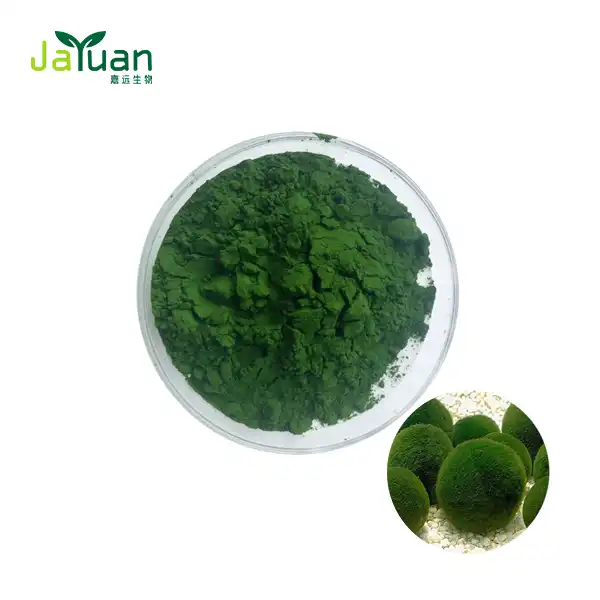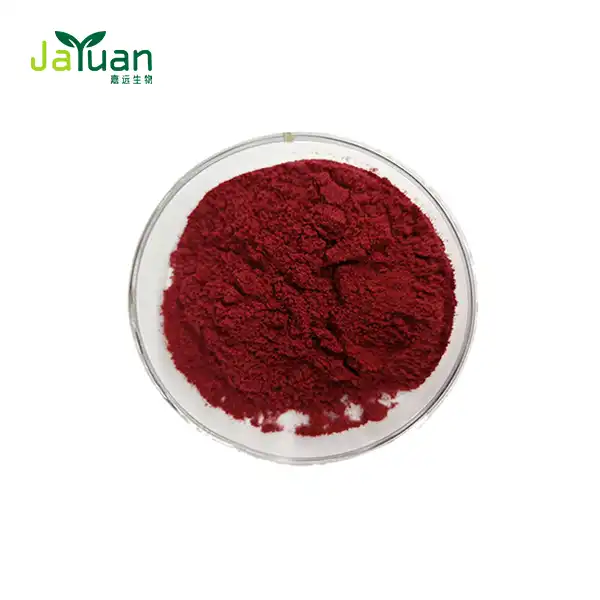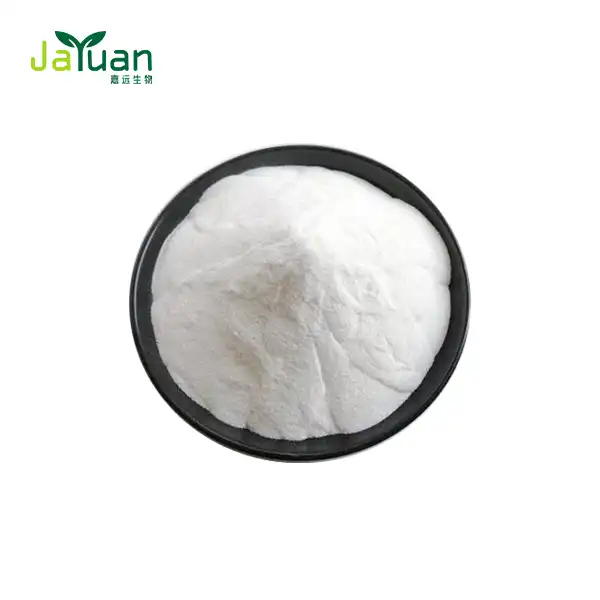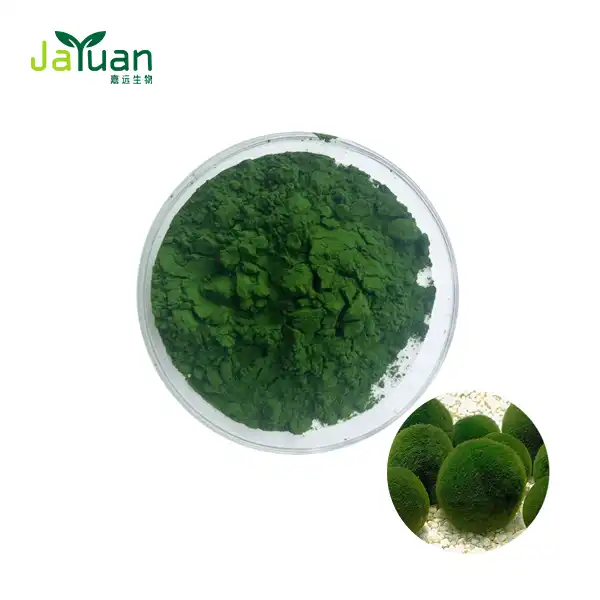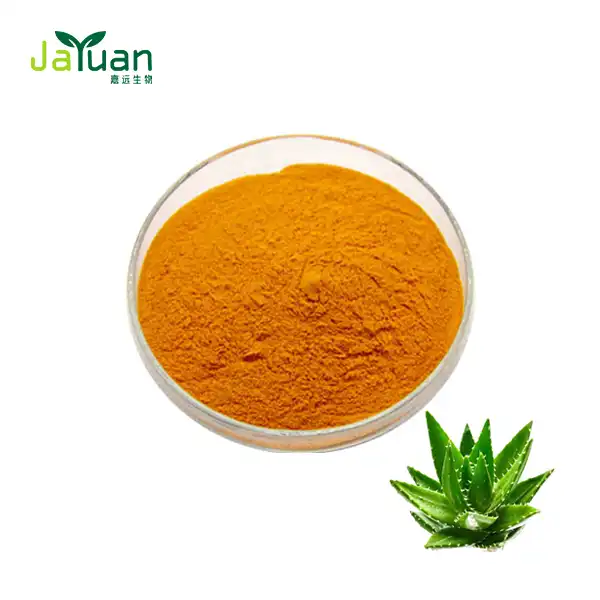Can Polygonum Cuspidatum Extract Be Used for Skin Health?
Polygonum cuspidatum, also known as Japanese knotweed, has been gaining attention in the skincare world for its potential benefits. This perennial plant, native to East Asia, has been used in traditional medicine for centuries. Today, we're exploring how Polygonum cuspidatum extract can contribute to skin health and beauty.
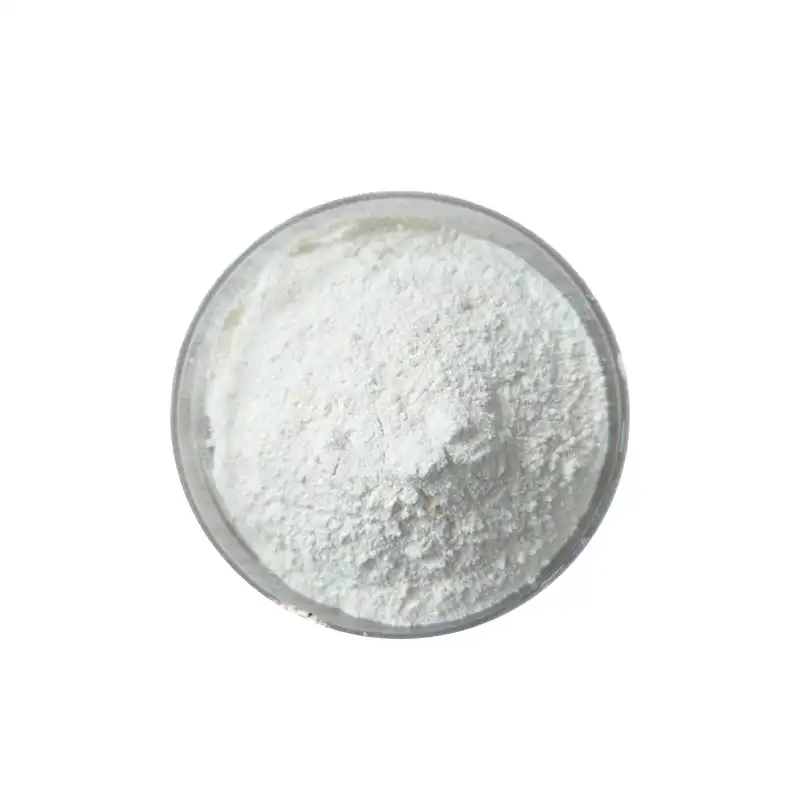
How Polygonum Cuspidatum Benefits Skin: Anti-Aging and More
Polygonum cuspidatum extract is rich in resveratrol, a powerful antioxidant that has been linked to numerous health benefits, including potential anti-aging effects on the skin. Let's delve into how this extract can support skin health:
Antioxidant Protection
The high resveratrol content in Polygonum cuspidatum extract provides potent antioxidant protection. Antioxidants help neutralize free radicals, which are unstable molecules that can damage skin cells and accelerate the aging process. By combating oxidative stress, this extract may help maintain skin's youthful appearance and resilience.
Collagen Support
Research suggests that resveratrol may stimulate collagen production. Collagen is a crucial protein that gives skin its structure and elasticity. As we age, collagen production naturally declines, leading to wrinkles and sagging skin. By potentially boosting collagen synthesis, Polygonum cuspidatum extract could help maintain skin firmness and reduce the appearance of fine lines.
UV Protection
While not a substitute for sunscreen, some studies indicate that resveratrol may offer some protection against UV damage. UV rays are a major contributor to premature skin aging, causing sunspots, wrinkles, and loss of elasticity. The antioxidant properties of Polygonum cuspidatum extract might help mitigate some of this damage, supporting overall skin health.
Skin Brightening
Polygonum cuspidatum extract has been associated with skin-brightening effects. It may help inhibit tyrosinase, an enzyme involved in melanin production. By potentially reducing excess melanin, this extract could contribute to a more even skin tone and help fade dark spots or hyperpigmentation.

Topical Uses of Polygonum Cuspidatum for Acne and Inflammation
Beyond its anti-aging potential, Polygonum cuspidatum extract shows promise in addressing other skin concerns, particularly acne and inflammation. Here's how this versatile extract might benefit those with acne-prone or sensitive skin:
Anti-Inflammatory Properties
Inflammation is a key factor in many skin issues, including acne and redness. Polygonum cuspidatum extract has demonstrated anti-inflammatory properties, which could help soothe irritated skin and reduce the redness associated with acne lesions. This anti-inflammatory action may also benefit those with sensitive skin prone to redness or reactivity.
Antimicrobial Effects
Some research suggests that Polygonum cuspidatum extract may have antimicrobial properties. This could be particularly beneficial for acne-prone skin, as acne is often exacerbated by the presence of certain bacteria. By potentially reducing bacterial growth on the skin, this extract might help prevent or minimize acne breakouts.
Oil Control
Excessive sebum production is another factor that can contribute to acne. While more research is needed, some studies indicate that resveratrol (found in high concentrations in Polygonum cuspidatum extract) might help regulate sebum production. This could lead to less oily skin and potentially fewer acne breakouts.
Wound Healing
For those dealing with acne scars or other skin wounds, Polygonum cuspidatum extract might offer some benefits. Some studies suggest that resveratrol can promote wound healing by stimulating the production of certain growth factors involved in tissue repair. This could potentially help in reducing the appearance of acne scars over time.
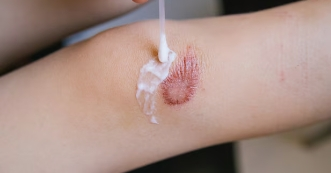
Is Polygonum Cuspidatum Safe and Effective for Sensitive Skin?
When considering any new skincare ingredient, safety is paramount, especially for those with sensitive skin. Let's examine the safety profile of Polygonum cuspidatum extract and its potential effectiveness for sensitive skin types:
Generally Well-Tolerated
Polygonum cuspidatum extract is generally considered safe for topical use. Many people, including those with sensitive skin, can use products containing this extract without experiencing adverse reactions. However, as with any skincare ingredient, individual responses can vary.
Patch Testing
For those with sensitive skin or a history of skin reactions, it's always advisable to perform a patch test before incorporating a new product into your skincare routine. Apply a small amount of the product containing Polygonum cuspidatum extract to a discreet area of skin and monitor for any reactions over 24-48 hours.
Potential for Soothing Effects
The anti-inflammatory properties of polygonum cuspidatum root extract may actually make it beneficial for sensitive skin. By potentially reducing inflammation and soothing irritation, this extract could help calm reactive skin and reduce redness.
Concentration Matters
The concentration of Polygonum cuspidatum extract in a product can impact both its effectiveness and the likelihood of skin reactions. Products formulated specifically for sensitive skin often use gentler concentrations. It's important to start with lower concentrations and gradually increase usage as your skin adjusts.
Complementary Ingredients
The effectiveness and safety of Polygonum cuspidatum extract can also depend on the other ingredients in a formulation. Look for products that combine this extract with other soothing and hydrating ingredients known to be well-tolerated by sensitive skin, such as aloe vera, chamomile, or hyaluronic acid.
Consulting a Dermatologist
If you have particularly sensitive skin or a skin condition like eczema or rosacea, it's always best to consult with a dermatologist before introducing new active ingredients into your skincare routine. They can provide personalized advice based on your specific skin type and concerns.
Long-Term Use and Skin Adaptation
Some people find that their skin becomes more tolerant to active ingredients over time. If you have sensitive skin, you might start by using products with Polygonum cuspidatum extract less frequently (e.g., once or twice a week) and gradually increase usage as your skin adapts.
Potential for Improved Skin Barrier Function
Some research suggests that resveratrol, a key component of Polygonum cuspidatum extract, may help improve skin barrier function. A stronger skin barrier can lead to less sensitive, more resilient skin over time. This could make the extract particularly beneficial for those with sensitive skin in the long run.
Sun Sensitivity
While Polygonum cuspidatum extract may offer some UV protection, it's important to note that it can also increase skin sensitivity to the sun in some cases. Always use a broad-spectrum sunscreen when using products containing this extract, especially if you have sensitive skin.
In conclusion, Polygonum cuspidatum extract shows promising potential for various aspects of skin health, from anti-aging to acne management. Its antioxidant, anti-inflammatory, and potential collagen-boosting properties make it a versatile ingredient in skincare. While generally well-tolerated, those with sensitive skin should approach its use with caution, starting with patch tests and lower concentrations. As research continues, we may uncover even more benefits of this intriguing plant extract for skin health.
Are you interested in incorporating Polygonum cuspidatum extract into your skincare routine? At Xi'an Jayuan Bio-Tech, we offer high-quality Polygonum cuspidatum extract powder for various applications, including skincare formulations. Contact us at sales@jayuanbio.com to learn more about our products and how they can enhance your skincare offerings.
References
- Lee, H. S., et al. (2014). "Antioxidant and anti-inflammatory activities of Polygonum cuspidatum extract in human dermal fibroblasts." Journal of Ethnopharmacology, 154(3), 624-634.
- Boo, Y. C. (2019). "Human Skin Lightening Efficacy of Resveratrol and Its Analogs: From in Vitro Studies to Cosmetic Applications." Antioxidants, 8(9), 332.
- Xu, Q., et al. (2014). "Resveratrol in the treatment of allergic contact dermatitis: Molecular mechanisms." International Immunopharmacology, 23(1), 27-34.
- Hung, C. F., et al. (2008). "Topical resveratrol delivery system for skin cancer chemoprevention." Molecular Cancer Therapeutics, 7(7), 2127-2138.
- Ndiaye, M., et al. (2011). "The grape antioxidant resveratrol for skin disorders: Promise, prospects, and challenges." Archives of Biochemistry and Biophysics, 508(2), 164-170.
- Bastianetto, S., et al. (2015). "Protective action of resveratrol in human skin: possible involvement of specific receptor binding sites." PLoS One, 10(12), e0145068.

